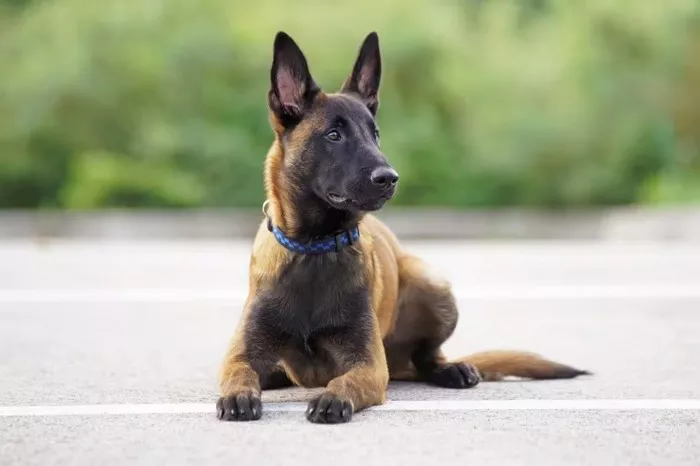Choosing between a German Shepherd (GSD) and a Belgian Malinois (Malinois) is a significant decision for any dog owner. Both breeds are highly intelligent, versatile working dogs, but their differences in temperament, care requirements, and suitability for specific lifestyles can make one a better fit than the other. This article explores key factors to help you decide, including breed history, physical traits, temperament, health, and lifestyle compatibility.
Breed Overview: History and Roles
German Shepherd
German Shepherds originated in Germany in the late 19th century as herding and farm dogs. Their intelligence and trainability soon made them popular in military, police, and search-and-rescue roles. Today, they are widely used as service dogs, family guardians, and in competitive sports like agility.
Belgian Malinois
The Malinois is one of four Belgian Shepherd varieties, developed in Belgium for herding and protection. Known for their speed and agility, they have become a top choice for military and law enforcement agencies worldwide, particularly in roles like bomb detection and special operations.
Key Insight
While both breeds excel in working roles, Malinois are often preferred for high-intensity tasks, whereas GSDs are more common in family and therapy settings.
Physical Traits and Grooming Needs
Size and Build
German Shepherd: Males weigh 65–90 lbs (29–41 kg) and stand 24–26 inches tall. They have a muscular, slightly elongated body with a dense double coat.
Belgian Malinois: Slightly smaller, males weigh 55–75 lbs (25–34 kg) and stand 24–26 inches tall. They have a leaner build and a shorter, weather-resistant coat.
Grooming
GSDs: Shed heavily year-round, requiring brushing 2–3 times weekly. Their thick coat needs regular maintenance to prevent matting.
Malinois: Shed moderately but require less frequent brushing (1–2 times weekly). Bathing every 4–6 weeks is sufficient unless they engage in muddy activities.
Takeaway: GSDs demand more grooming effort, while Malinois are lower-maintenance but still need consistent care.
Temperament and Training
Energy Levels
Malinois: Extremely high-energy. They thrive on vigorous exercise (2+ hours daily) and mental challenges. Without stimulation, they may develop destructive behaviors.
GSDs: Active but slightly less intense. They require 1–2 hours of daily exercise and enjoy structured tasks like obedience training.
Trainability
Both breeds are highly trainable, but differences exist:
Malinois: Quick learners with a strong work drive. They excel in precision tasks (e.g., scent detection) but may become stubborn without firm leadership.
GSDs: More adaptable to varied training styles. They bond closely with families and aim to please, making them easier for first-time owners.
Note: Malinois scored higher in obedience tests compared to GSDs in a study of 716 working dogs, but both breeds exceeded 80% success rates.
Health and Lifespan
Common Health Issues
GSDs: Prone to hip dysplasia, degenerative myelopathy, and bloat. Lifespan: 9–13 years.
Malinois: Generally healthier but may develop elbow dysplasia or progressive retinal atrophy. Lifespan: 12–15 years.
Preventive Care
Both breeds benefit from:
- Regular vet checkups.
- Joint supplements (e.g., glucosamine).
- Controlled diets to avoid obesity.
Lifestyle Compatibility
Family Life
GSDs: Gentle with children when socialized early. Their protective nature makes them excellent family guardians.
Malinois: Best suited for homes without young children. Their herding instincts may lead to nipping or chasing.
Living Space
GSDs: Adaptable to apartments if exercised sufficiently. Prefer homes with yards.
Malinois: Not ideal for small spaces. They need room to run and explore.
Owner Experience
Malinois: Recommended for experienced handlers. Their intensity and drive can overwhelm novice owners.
GSDs: More forgiving of training mistakes. Suitable for dedicated first-time owners.
Work and Specialized Roles
Detection and Protection
Malinois: Dominate in military and police roles due to their speed and focus. A 2023 study found no significant difference in scent detection accuracy between GSDs and Malinois, but Malinois showed slightly higher obedience scores.
GSDs: Preferred for search-and-rescue and therapy work due to their calm demeanor.
Sports and Competition
Both breeds excel in agility and obedience trials, but Malinois often outperform GSDs in high-speed tasks like bite sports.
Cost and Availability
Puppy Prices
- GSDs: 3,000 from reputable breeders.
- Malinois: 4,000, with working-line dogs costing more.
Adoption
Rescue organizations often have adult GSDs and Malinois. However, Malinois in shelters may require extensive rehabilitation due to their high energy.
Conclusion
Choosing between a German Shepherd and Belgian Malinois depends on your lifestyle, experience, and goals:
Choose a GSD if: You want a loyal family dog, have moderate exercise space, or are a first-time owner.
Choose a Malinois if: You seek a high-performance working dog, have extensive training experience, and can dedicate time to physical and mental stimulation.
Both breeds offer unmatched loyalty and versatility but thrive in different environments. Assess your capabilities honestly to ensure a successful partnership.
Related Topics:
ARE BELGIAN SHEPHERDS HIGH MAINTENANCE?
ARE BELGIAN SHEPHERDS HARD TO TAKE CARE OF?
ARE BELGIAN SHEPHERDS GOOD FOR FIRST-TIME OWNERS?


